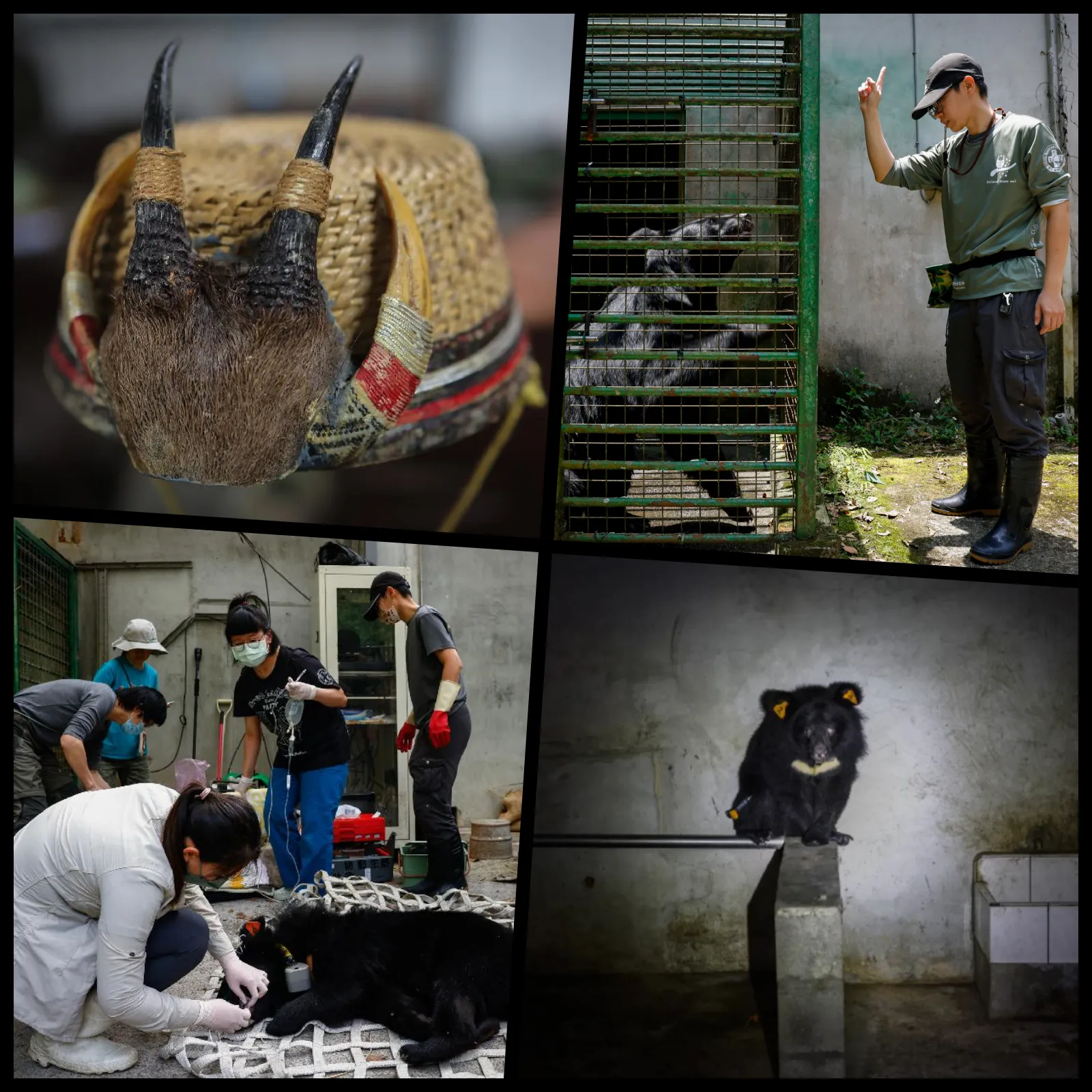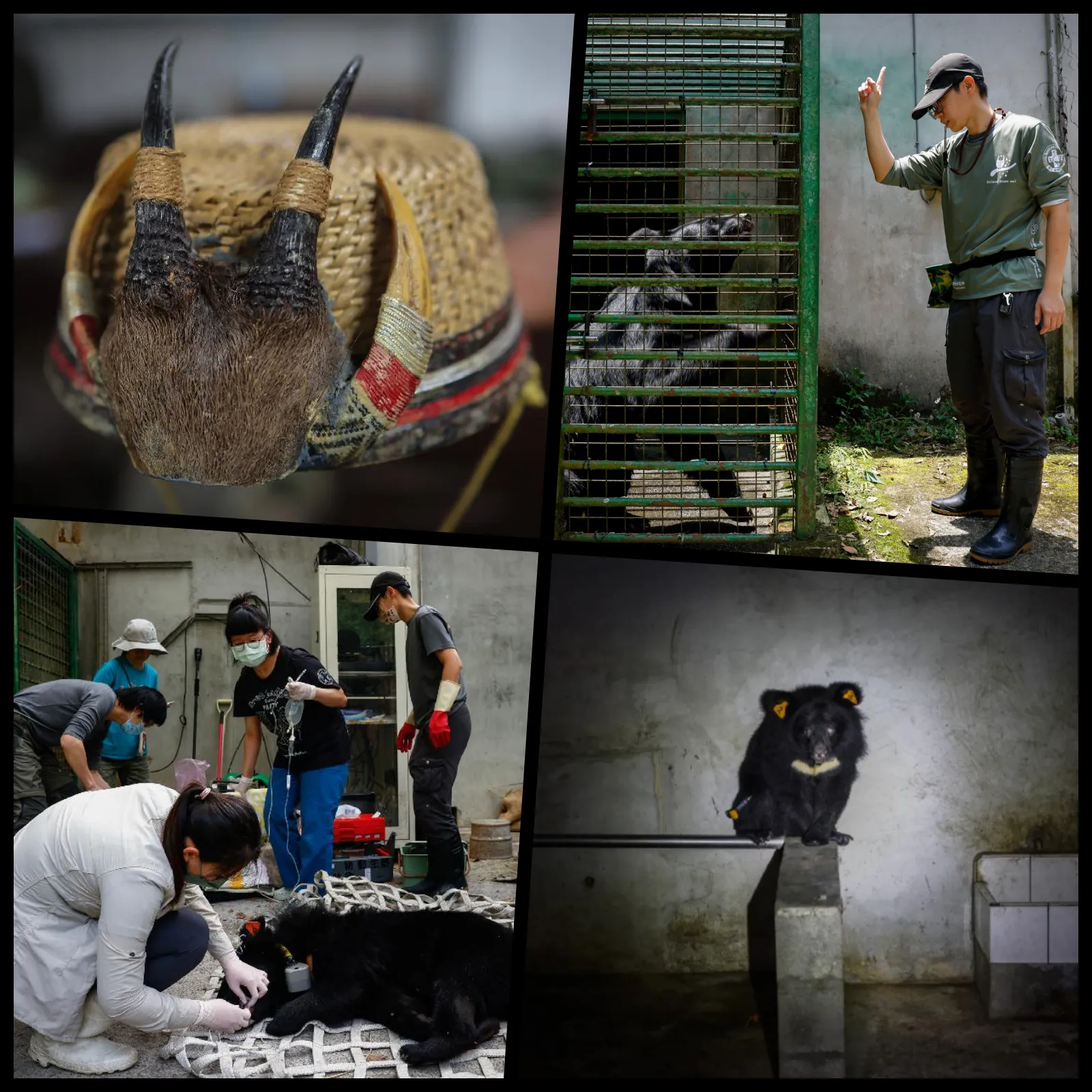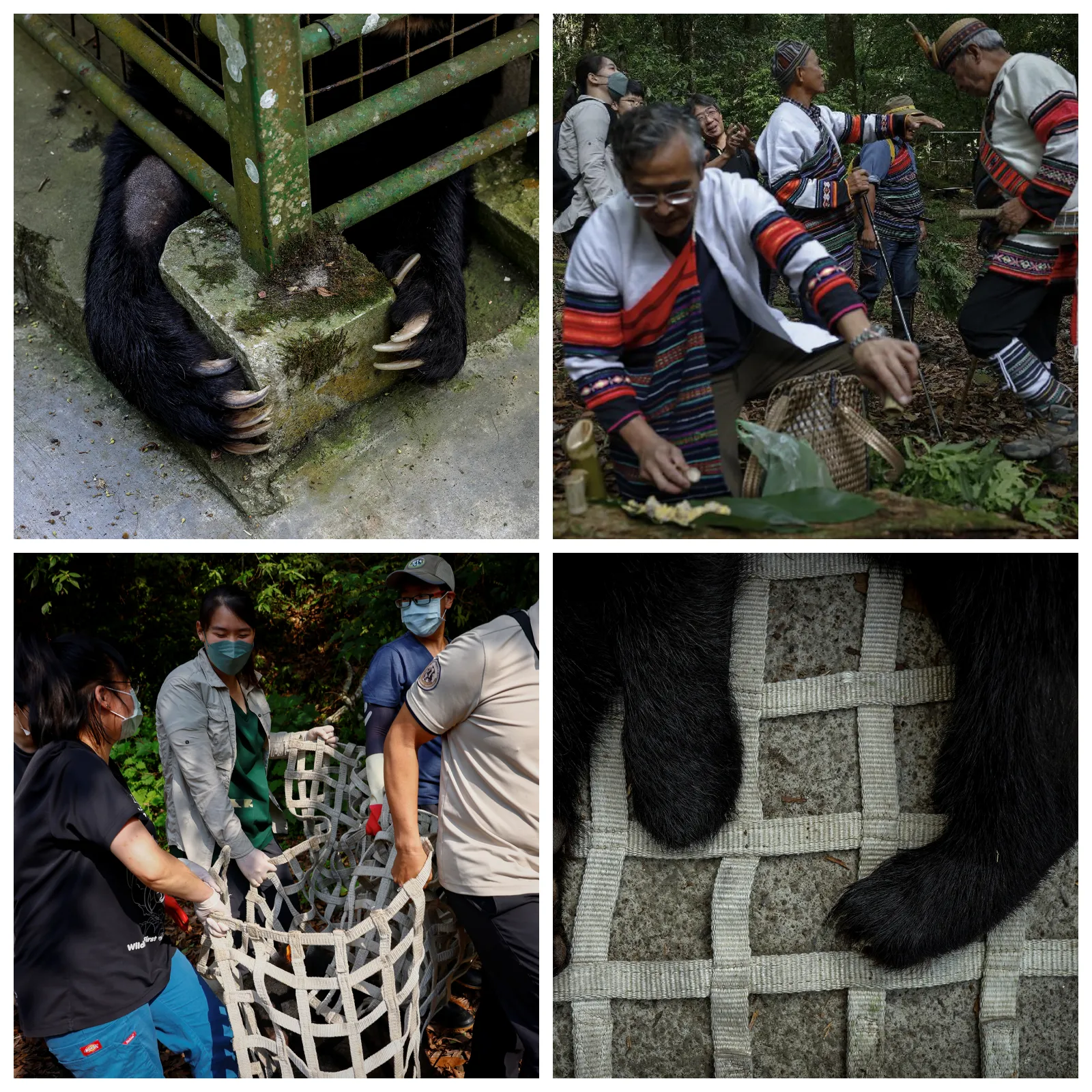
In a poignant development for wildlife conservation, Taiwan’s ambitious efforts to save its critically endangered black bears have faced a tragic setback.
Taiwan’s black bears, now numbering only a few hundred in the wild, have been the focus of a significant conservation push. Recent attempts to reintroduce a bear named Ziman, who had suffered severe injuries from a poacher’s trap, ended in sorrow just weeks after its release.

The Hope and Heartbreak of Ziman’s Release
At just one and a half years old, Ziman was rescued after getting caught in a steel snare that resulted in the amputation of one of its feet. After a two-month recovery period at the Wushikeng Research Center, the young bear was deemed ready for release. The conservation team hoped to give Ziman a new chance at life by letting it roam freely in its natural habitat.
During its release, the team employed various methods—such as firing warning shots and blowing whistles—to encourage Ziman to quickly flee into the forest, away from human presence and potential dangers. The goal was to ensure that Ziman would avoid further traps and adapt to life in the wild.

Challenges and Conservation Efforts
Despite their best efforts, black bears like Ziman are not targeted directly by local hunters. However, they frequently fall victim to snares intended for other wildlife, such as deer and wild boar. According to the Taiwan Black Bear Conservation Association, since 2014, 18 black bears have been caught in traps, with six dying from their injuries.
To combat this issue, the Taiwan Forestry and Nature Conservation Agency has encouraged the use of traps with smaller snares to reduce bear injuries. Over 5,600 of these modified traps have been distributed to local hunters and farmers, aiming to protect bears while still allowing them to trap other wildlife.

A Tragic Discovery
Despite the conservationists’ hopes, Ziman was found dead in the forest only a few weeks after its release. The exact cause of death remains undetermined, adding to the sadness surrounding this conservation effort. Chen Yen-long, director of the Wushikeng Center, acknowledged the heartbreak of losing Ziman and the continued need for wildlife rescue efforts.
Lai Chiao Ling, one of the caregivers for Ziman, expressed a commitment to continuing the fight for black bear preservation. “We will not give up; there are still wild bears that need our help,” she stated, reflecting the ongoing struggle to protect Taiwan’s unique wildlife.
Moving Forward
The efforts to preserve Taiwan’s black bears are far from over. The conservation community remains dedicated to improving their strategies and ensuring the survival of these majestic creatures in their natural habitat.






